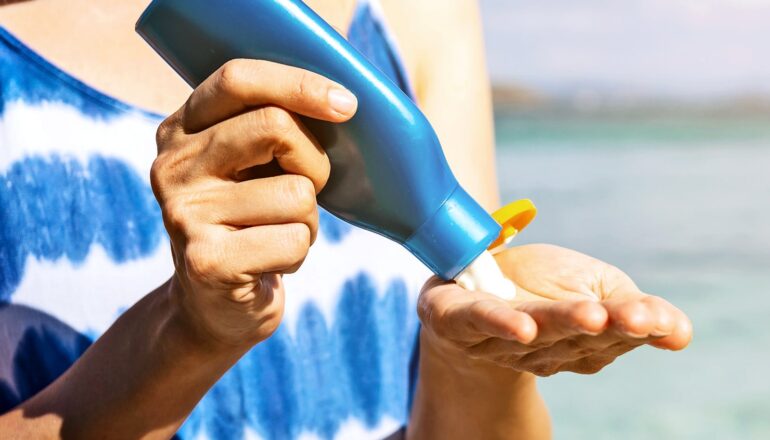How to best protect your skin from the sun this summer
- According to dermatologist Elnaz Firoz, sunscreen use mistakes are common at the beach, despite its widespread popularity and recommendation by the American Academy of Dermatology.
- Firoz notes that people often apply sunscreen incorrectly, such as applying it too late or reapplying too frequently, which can reduce its effectiveness in shielding skin from sun damage.
- One way to educate people about sun protection is through dermatologist-led screenings and events, such as the free skin cancer screenings offered by Brown University-affiliated faculty members.
- Firoz emphasizes the importance of proper sunscreen application, including applying it 15-30 minutes before going outside, reapplying every two hours or immediately after swimming or sweating, and using enough product to cover all exposed skin.
- Despite its benefits, Firoz also addresses common myths about sunscreen, such as the idea that it causes cancer or is only necessary for people with fair skin; she stresses that sunscreen is a crucial tool in preventing skin cancer and sun damage for everyone.

As summer heats up, a dermatologist has answers for you about sunscreen and skin cancer.
Sunscreen should be simple: Apply it properly, and it will do its job shielding skin from the sun’s damaging rays. Yet despite the fact that sunscreen has enjoyed popularity for decades—and that it’s recommended for universal use by the American Academy of Dermatology—it is often misunderstood and misused.
Elnaz Firoz, an associate professor of dermatology, clinician educator, at Brown University’s Warren Alpert Medical School, and medical director of dermatology at Miriam Hospital in Providence, says she spots dozens of sunscreen use mistakes every time she goes to the beach.
“I’m always so shocked at the practices that I see,” Firoz says. “It makes me wonder how we can get more information out to people about how to use sunscreen.”
One way to educate people about sun protection is to connect them with dermatologists. Firoz is one of several Brown-affiliated faculty members who participate in free skin cancer screenings, including at the Amal Clinic at Clínica Esperanza, the Rhode Island Free Clinic and a series of skin check events held at Rhode Island beaches in partnership with the Rhode Island Department of Health.
In this Q&A, Firoz shares sun protection advice and addresses myths about the dangers of sunscreen:
The post How to best protect your skin from the sun this summer appeared first on Futurity.
